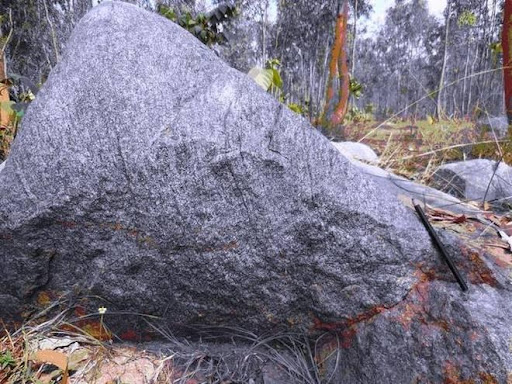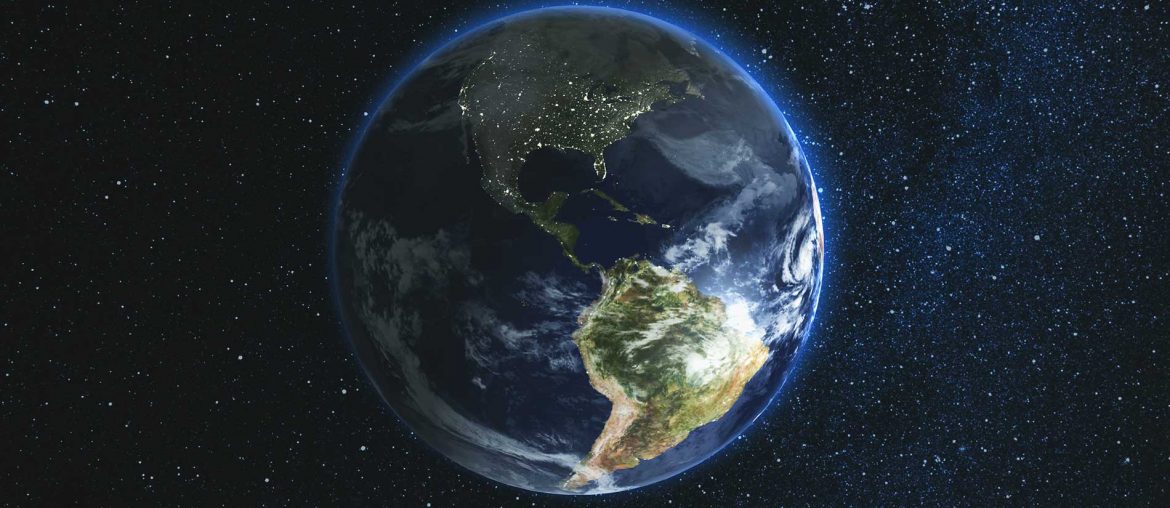The below image looks like an ordinary rock image, isn’t it? However, you will be surprised to know it is a priceless stone!!

This Singhbhum rock sample formed from magma was recovered nearly eight years ago from Champua in Odisha’s Kendujhar district. A discovery of great promise made by the Indian and foreign geologists placed India at the forefront of geological research in the world. Scientists found in the rock a grain of magmatic zircon (a mineral that contains traces of radioactive isotopes) estimated to be 4,240 million years old. The isotopic analysis was done in collaboration with a Chinese senior researcher using the machine SHRIMP (Sensitive High-Resolution Ion Microprobe).
A lot of us wonder how these magnificent formations are formed and wish to study the processes that create them.
This brings us to know more about the fields of study like Earth Sciences that are associated with not only knowing more about these processes but also resolving the current climate and energy-related concerns.
Earth Science is the study of Earth and its neighbours in space. While few Earth scientists use their knowledge of the Earth to locate and develop energy and mineral resources, the others study the impact of human activity on Earth’s environment, and design methods to protect the planet. A few of them also specialize in using their knowledge about Earth processes such as volcanoes, earthquakes, and hurricanes to plan communities that will not expose people to these dangerous events.
Four Basic Areas of Earth Science Study are:
Geology: Branch of Earth Science that deals with the study of Earth – its interior and exterior surface, the rocks and other materials that are around us, the processes that have resulted in the formation of those materials, the water that flows over the surface and lies underground, the changes that have taken place over the vastness of geological time, and the changes that we can anticipate will take place in the near future.
Meteorology: Branch of the atmospheric sciences which includes atmospheric chemistry and atmospheric physics, with a major focus on weather forecasting.
Oceanography: Branch that deals with the study of all aspects of oceans and covers a wide range of topics, from marine life and ecosystems to currents and waves, to the movement of sediments, to seafloor geology.
Astronomy: Branch that includes the scientific study of celestial objects (stars, planets, comets, and galaxies) and phenomena that originate outside the Earth’s atmosphere.
These interdisciplinary fields of study combine the knowledge of Physics, Chemistry, Biology with Geology, Geography, Palaeontology, Astronomy, Mathematics to understand more about the origin, development and future of the Earth.
Let’s learn more about Geology:
Geology, an interdisciplinary field of study, involves the understanding and application of all of the other sciences: chemistry, physics, biology, mathematics, astronomy, and others. Be it The Rocky Mountains in Canada, the Gangotri glacier or the Singhbhum rock in India, Geology with around 150 branches, plays an important role in knowing and understanding more about our planet.
Also Read: All You Need to Know About a Career in Counselling Psychology
Geology includes various specializations and sub-disciplines like:
- Mineralogy: the scientific study of minerals and mineralized artefacts.
- Seismology: study to monitor the earthquakes and protect people and property from damage.
- Volcanology: the study of volcanoes, lava, magma and associated phenomena.
- Planetary Geology: the study that compares the geology of other planets to Earth.
- Biogeology – Study of the interactions between the Earth’s biosphere and the lithosphere
- Economic geology – Science concerned with earth materials of economic value
- Engineering geology – Application of geology to engineering practice
- Environmental geology – Science of the practical application of geology in environmental problems.
- Geochemistry – Science that applies chemistry to analyze geological systems
- Geologic modelling – Applied science of creating computerized representations of portions of the Earth’s crust
- Geomorphology – the scientific study of landforms and the processes that shape them
- Geophysics – Physics of the Earth and its vicinity
- Historical geology – Study of the geological history of Earth
- Hydrogeology – Study of the distribution and movement of groundwater
- Hydrology – Study of the movement, distribution, and management of water on Earth and other planets, including the water cycle, water resources and environmental sustainability.
- Marine geology – Study of the history and structure of the ocean floor
- Mining geology – Extraction of valuable minerals or other geological materials from the Earth
- Palaeontology – Study of life 11,700 years ago that includes the study of fossils.
- Petroleum geology – Study of the origin, occurrence, movement, accumulation, and exploration of hydrocarbon fuels
- Petrology – the branch of geology that studies the origin, composition, distribution and structure of rocks (igneous, metamorphic, sedimentary).
- Stratigraphy – Study of rock layers and their formation.
- Sedimentology – The study of natural sediments and of the processes by which they are formed
- Structural geology – Science of the description and interpretation of deformation in the Earth’s crust
- Crystallography – Scientific study of crystal structure.
- Spectral Geology – Measurement and analysis of electromagnetic spectrum to identify spectrally distinct and physically significant features of different rock types and surface materials, their mineralogy and their alteration signatures.
Skills Required:
- Observation skills
- Good ability in data processing, analysis and interpretation
- Problem-solving skills and analytical thinking
- Self-motivation and resilience
- Good written and verbal communication skills
- Good physical stamina
Career Path:
Students should opt for Geology or Pure Science (PCM) in grade 12 and complete a bachelor’s degree in geology, earth sciences or related scientific field. Institutes like IISER also provides a 5-year dual BS-MS degree in Earth Sciences.
National level exams like GATE and a few university-level exams are conducted for pursuing Masters in Geology/Earth Science/Applied Geology.
PG programs in the above-mentioned specializations will set students up for a career within the energy, environmental or engineering sectors and related work experience can further boost their job prospects.
After getting a degree, students can work in private companies or consulting firms in India as well as abroad.
Scope and Opportunities:
Few top segments that require Geologists are:
- Environmental consulting/protection firms
- Geology/Engineering firms
- Government institutions
- Academics (Teaching)
- Construction companies
- Petroleum and mining companies
In India, geologists and earth scientists work in organizations like:
- Geological Survey of India
- Oil & Natural Gas Corporation
- Coal India Limited
- NHPC
- Cairn Energy India
- Indian Oil
- Hindustan Zinc Limited
- Water and Sanitation Management Organization
- ISRO
- DRDO
- Mineral Exploration Corporation Limited
- Central Ground Water Board
- Bharat Petroleum Corporation Limited
The top five jobs held by geology graduates include geologists, mineralogists, environment professionals, civil engineers and geophysicists.
Top Institutes in India Offering Programs in Geology:
- IISER
- SRM University
- BU University, Bhopal
- St. Xavier’s College, Mumbai
- Fergusson College, Pune
- Presidency College, Chennai
- IIT Kharagpur/Mumbai/Roorkee
- IIT ISM Dhanbad
- NIT Raipur
- Banaras Hindu University
- Osmania University, Hyderabad
- Delhi University
- Amity University, Noida
Geology looks at some of the most important issues in society today, including energy sources and sustainability, climate change, the impacts of developments on the environment, water management, mineral resources and natural hazards.
A career counsellor must know about different courses and careers. Therefore, you should know all about the study of Earth Sciences-Geology.
If you are passionate about helping students and guiding them towards the right career path, become a Global Career Counsellor. It’s Asia’s 1st comprehensive online program by Univariety in Collaborations with UCLA Extension. This helps individuals passionate about career counselling upgrade their careers as professional career counsellors.

Manjula Ovalekar
This is Manjula Ovalekar, a trained Global Career Counsellor and founder of NurtureMyCareer.com, career guidance platform for high-school students.
She started her professional journey with IT training and education centres as a career counsellor, moving up the career ladder and held various leadership roles. In her 12+ years of work experience, she has been a successful Centre Head of IT training and education centres. She also had an opportunity of advising parents to choose the right early childhood education during her tenure as Principal of a pre-primary school.









